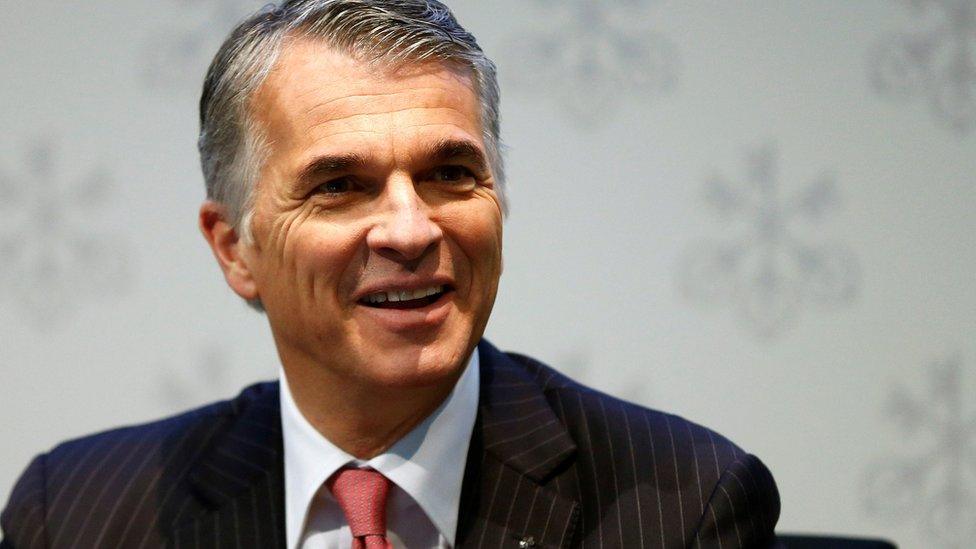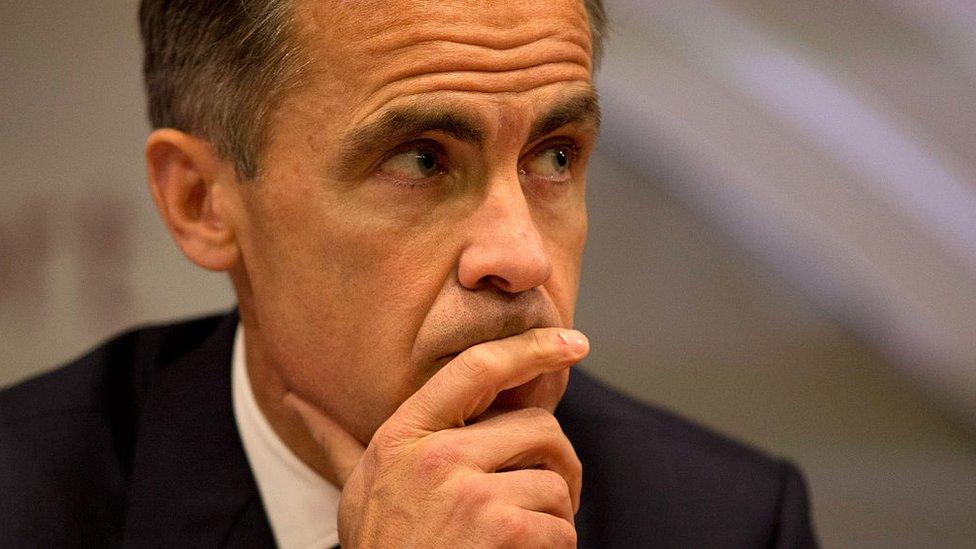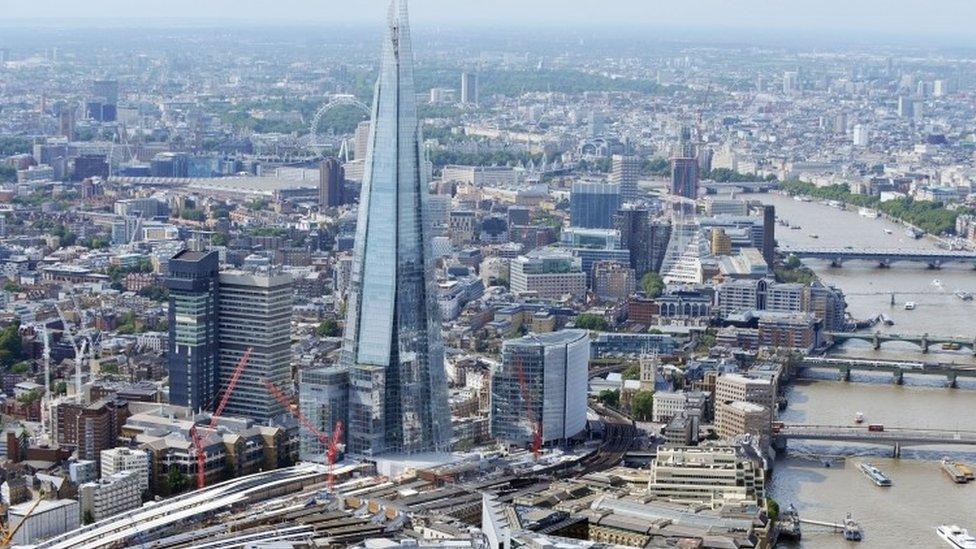City banks warn of Brexit job moves
- Published
- comments
UBS chairman Axel Weber: About 1,000 jobs in London could be affected by Brexit
Two of the largest investment banks in the City of London have confirmed that some staff will definitely have to move abroad when the UK leaves the EU.
HSBC's chief executive, Stuart Gulliver, told Bloomberg he was preparing to move 1,000 staff from London to Paris.
And Axel Weber, boss of Swiss bank UBS, told the BBC "about 1,000" of its 5,000 London jobs could be hit by Brexit.
The comments underline that many thousands of banking jobs may move.
The statements from the two banks come just a day after UK Prime Minister Theresa May outlined the UK government's Brexit negotiating strategy which would, she said, involve leaving both the European single market and the EU's customs union.

Analysis: Simon Jack, BBC business editor
It seems that HSBC wasn't bluffing. The day after Theresa May confirmed the UK will be leaving the single market, HSBC confirmed plans to move 1,000 bankers to Paris.
We always knew how many but today we learned how much business they would take with them from London. Those bankers generate 20% of HSBC's European banking revenue - a number that HSBC wouldn't split out but is in the billions.
Revenue is not the same as profit but the move will dent government tax receipts, as will the loss of income tax from a thousand highly paid investment bankers.
UBS has also previously threatened to move 1,500 bankers, nearly a third of its workforce, to Europe in the event of Brexit. But today the chairman Axel Weber told the BBC he hoped the final number would be lower.
UBS privately acknowledge that whatever happens a significant number of jobs will leave, most probably to Frankfurt, and that process will start soon after the UK triggers Article 50 - the mechanism to leave the EU.
With Britain's exit from the single market confirmed by the Prime Minister, what were once contingency plans are now becoming reality.

UK citizens voted in a referendum last June that the country should leave the European Union.
Since then, there has been widespread speculation that many financial jobs based in London might migrate to cities in the rest of Europe, such as Dublin, Paris or Frankfurt, so that the banks concerned could continue to offer their services to EU clients.
Quick decision
Mr Gulliver said his bank was in no rush, but added: "Specifically what will happen is those activities covered specifically by European financial regulation will need to move, looking at our own numbers.
"That's about 20% of the revenue," he told Bloomberg Television at the World Economic Forum in Davos, Switzerland.
But he added: "I don't see the foreign exchange market moving, the investment grade bond market moving, the equity market moving and the high-yield bond market moving."

UBS chief executive Sergio Ermotti says some jobs will move whatever Brexit deal is done
HSBC has already said that post-Brexit it would keep its global headquarters in London and its UK headquarters in Birmingham.
And Mr Gulliver explained that HSBC was helped by the fact that it already had a bank established within the EU as it had bought Credit Commercial de France in 2002.
But he said the position for other banks was different.
"Some of our other fellow bankers have to make decisions pretty quickly now - given that the UK said it will come out of the single market - about applying for banking licenses in some of the EU countries. We don't have to do that," he said.
Last week, the chairman of HSBC, Douglas Flint, told a committee of MPs that 1,000 jobs at his bank's London offices would move to France once Brexit was triggered, a point his bank first made in the aftermath of the referendum last June.
'Anticipating the worst'
UBS chief executive Sergio Ermotti told Bloomberg he would have a better idea towards the end of 2017 about how many jobs at his bank will need to move out of London.
But one of his senior executives, Andrea Orcel, also speaking at Davos, said: "With Brexit we will have to [move] and the question is how many.
"That will very much depend on the agreement that the UK will reach with the EU - but we will definitely have to go."
Mr Orcel added that his bank was "anticipating the worst".
He explained that if the UK and the EU did not reach any sort of transition deal about Brexit, then some of his staff in London would have to be moved as soon as the UK government invoked Article 50, the legal procedure to leave the EU.
Ryanair
Meanwhile the Irish airline Ryanair says it may abandon its few routes which are wholly within the UK, once Brexit is achieved.
Its finance director, Neil Sorahan, said it might take this step rather than to comply with new regulations which demand that it obtain a UK air operating certificate.
Domestic UK flights involve only 2% of the company's routes.
- Published11 January 2017

- Published10 January 2017

- Published8 December 2016
